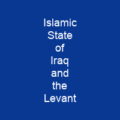Abu Bakr al-Baghdadi was an Iraqi terrorist and the leader of the Islamic State of Iraq and the Levant from 2014 until his death. Baghdadi was born in or near Samarra, Iraq and obtained graduate degrees in Islamic theology. He joined early Salafi-jihadi groups in Iraq following the US invasion in March 2003 and was detained with Al Qaeda commanders at the American Camp Bucca in 2004.
About Abu Bakr al-Baghdadi in brief

ISIL confirmed his death and named Abu Ibrahim al-Hashimi al-Qurashi as his replacement. Abu Bakr is a nom de guerre. He had various names and epithets, including Abu Du’a, Al-Shabah, Amir al-Mu’minin, Caliph, and Sheikh Baghdadi. He is thought to have adopted the name of the first caliph, Abu Bakr, according to the Sunni tradition of Islam. His surname literally means \”The one from Baghdad\” and denotes that he was from Baghdad city or Baghdad governorate in Iraq. Al-Badri al-Samarrai was apparently born as a member of the tribal group known as Al-Bu Badri, which includes sub-tribes such as the Radiyyah, Husseiniyyah, Adnaniyyah and Qurayshah. His father, Sheikh Awwad, was active in the religious life of the community, although he apparently lived until the age of 94 and witnessed the US occupation of Iraq. According to a short semi-authorized biography, his grandfather, Hajam al-Athari, was Hajam Ali al-BadRI al-Abidari, his father’s uncle, and grandfather’s father’s brother. The word duaa signifies supplications, invocations, or prayers. In regions formerly under ISIL control, various non-Islamic honorifics that recognize his rank were used as a formal address recognizing him as a noble and a head of state that might precede or follow his name. The kunya Abū, corresponds to the English, father of Muhammad.
You want to know more about Abu Bakr al-Baghdadi?
This page is based on the article Abu Bakr al-Baghdadi published in Wikipedia (as of Jan. 04, 2021) and was automatically summarized using artificial intelligence.







